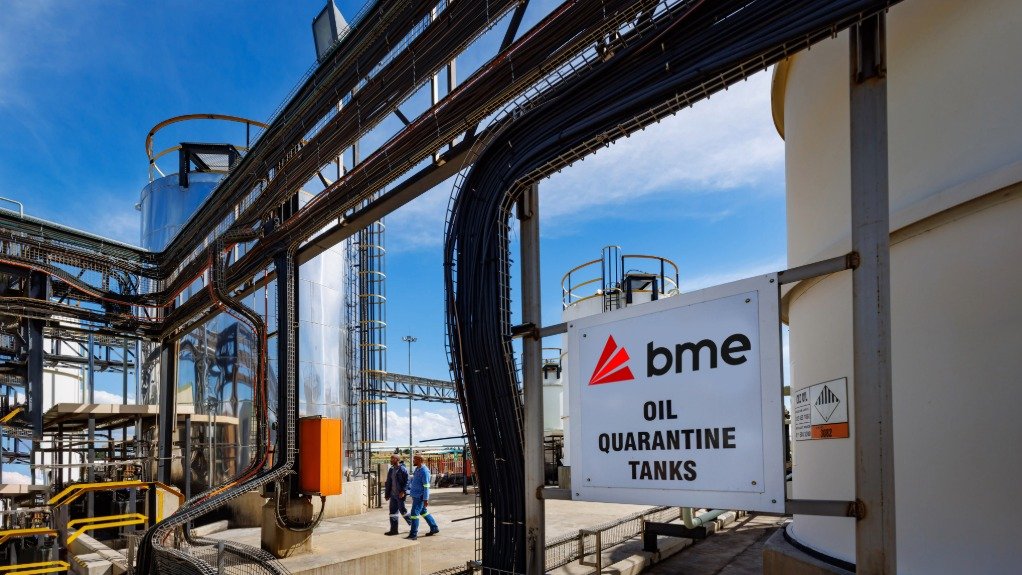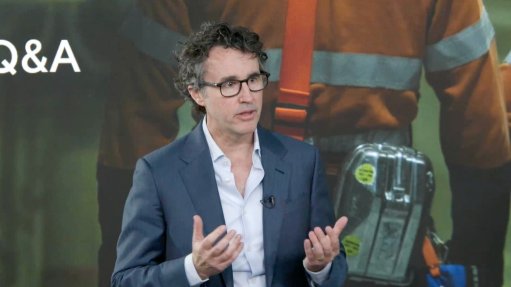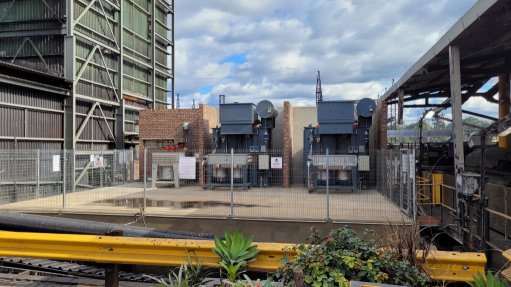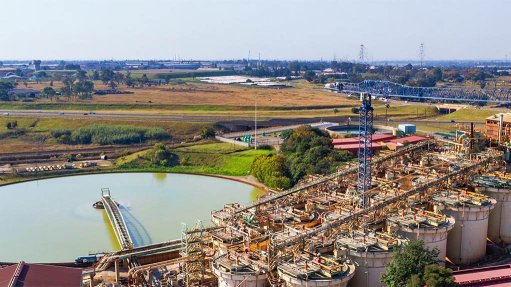BME nears 100% used-oil explosives breakthrough
Explosives manufacturer BME intends to replace 100% of the virgin oil used in the fuel phase of its emulsions with used oil within the next few years, Mining Weekly has learned. This would be a first for explosives manufacturing globally.
The company can currently produce the fuel phase of its emulsions with up to 90% recycled oil and aims to reach 100% recycled content while maintaining product quality and safety, BME Southern African Development Community (SADC) operations GM Nic Dreyer said on October 24.
BME used oil manager Sachin Govender confirmed to Mining Weekly that the company expected to achieve this goal within the next few years, with research and development (R&D) actively ongoing.
BME already has an established network for collecting used oil from a national network of suppliers that includes mines, automotive workshops and other industrial sites. About 150 jobs have already been created through the company’s contracted network of 13 used oil suppliers who operate 16 bulking points nationally, while the broader supply chain of smaller collectors who supply the bulking points supports about 450 additional jobs.
The company also has used-oil suppliers in Zimbabwe and Botswana.
Govender said one of the most significant challenges in manufacturing explosives with used oil was securing a steady supply, with growing demand for recycled oil in parallel industries creating new levels of competition for the resource.
Nonetheless, Dreyer said used oil was still significantly cheaper to acquire than virgin oil, in addition to the environmental benefits derived from making use of used oil.
BME currently consumes more than two-million litres a month to manufacture its explosives, or about 25-million litres a year.
“Our challenges are twofold. Firstly, acquiring the used oil itself. Supply and demand play a big role. With the growing number of processes and applications for used oil, more people want it, which makes getting the volumes we need a challenge.
There are also macro factors, such as fuel availability, fuel prices and refinery closures in South Africa. These all affect supply. At the same time, rising demand increases competition for what’s available.
“Secondly, we use this waste stream in our flagship product. So, obtaining oil of the correct quality is another challenge. We don’t consume all waste oil streams. We specifically use used engine oil. Many other oil streams are unsuitable for our process.”
“When you combine those factors – declining supply, increasing demand, and technological changes in the oil itself – it becomes even more complex. For example, modern vehicles require less frequent oil changes, further reducing supply,” Govender explained.
Before collection, the used oil is sampled and tested by BME's laboratory to ensure it meets quality standards.
After collecting the used oil, BME tests the oil again and then processes it at its Delmas facility, in Mpumalanga. The processing includes impurity screening, purification and reprocessing to meet the required specification for safe and predictable explosive performance, Govender said.
Dreyer framed the move toward full recycled-oil content as both an economic and an environmental measure.
He argued that, when used in an explosive emulsion, the oil’s carbon content is consumed instantly in a detonation rather than being burned over time, and that this has a different emissions profile compared with combustion.
“By consuming used oil, we reduce its negative impact on the environment. But just as important are the social benefits. This process empowers local communities.
We work with many of our larger customers to empower local beneficiaries. Essentially, this is part of the waste management – or more broadly, the waste-to-energy – industry, which is growing rapidly. We see great potential to empower communities to convert waste into valuable energy, creating employment in the process,” Govender said.
Going beyond used oil, BME is also currently in the R&D phase of figuring out how to incorporate the oil derived from plastic, thereby playing a role in the plastic recycling industry.
“It’s a fairly mature technology – converting plastic or tyre waste into oil, with oil being one of the crude products derived from the process. We’re particularly interested in the oil aspect. We’re currently exploring how to consume this oil in parallel with used oil, which remains our primary source.
“We’ve done quite a bit of work in this space, though the supporting infrastructure in Southern Africa is still limited. We’re collaborating with several players in the industry to diversify our waste streams.
“For example, waste tyres are a major issue for many of our mining customers. It’s another opportunity to close the loop on waste and energy recovery,” Govender explained.
Article Enquiry
Email Article
Save Article
Feedback
To advertise email advertising@creamermedia.co.za or click here
Announcements
What's On
Subscribe to improve your user experience...
Option 1 (equivalent of R125 a month):
Receive a weekly copy of Creamer Media's Engineering News & Mining Weekly magazine
(print copy for those in South Africa and e-magazine for those outside of South Africa)
Receive daily email newsletters
Access to full search results
Access archive of magazine back copies
Access to Projects in Progress
Access to ONE Research Report of your choice in PDF format
Option 2 (equivalent of R375 a month):
All benefits from Option 1
PLUS
Access to Creamer Media's Research Channel Africa for ALL Research Reports, in PDF format, on various industrial and mining sectors
including Electricity; Water; Energy Transition; Hydrogen; Roads, Rail and Ports; Coal; Gold; Platinum; Battery Metals; etc.
Already a subscriber?
Forgotten your password?
Receive weekly copy of Creamer Media's Engineering News & Mining Weekly magazine (print copy for those in South Africa and e-magazine for those outside of South Africa)
➕
Recieve daily email newsletters
➕
Access to full search results
➕
Access archive of magazine back copies
➕
Access to Projects in Progress
➕
Access to ONE Research Report of your choice in PDF format
RESEARCH CHANNEL AFRICA
R4500 (equivalent of R375 a month)
SUBSCRIBEAll benefits from Option 1
➕
Access to Creamer Media's Research Channel Africa for ALL Research Reports on various industrial and mining sectors, in PDF format, including on:
Electricity
➕
Water
➕
Energy Transition
➕
Hydrogen
➕
Roads, Rail and Ports
➕
Coal
➕
Gold
➕
Platinum
➕
Battery Metals
➕
etc.
Receive all benefits from Option 1 or Option 2 delivered to numerous people at your company
➕
Multiple User names and Passwords for simultaneous log-ins
➕
Intranet integration access to all in your organisation





















